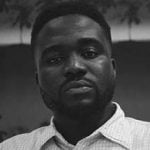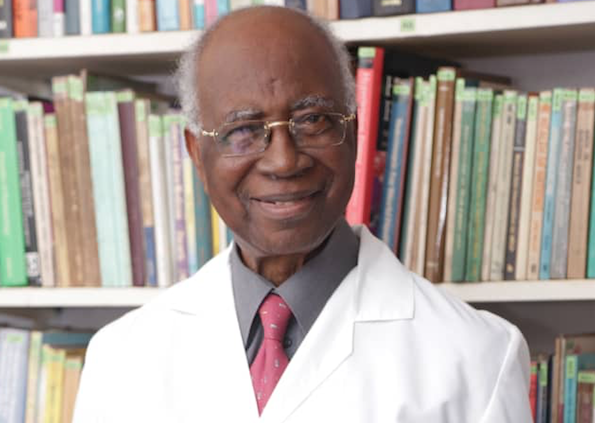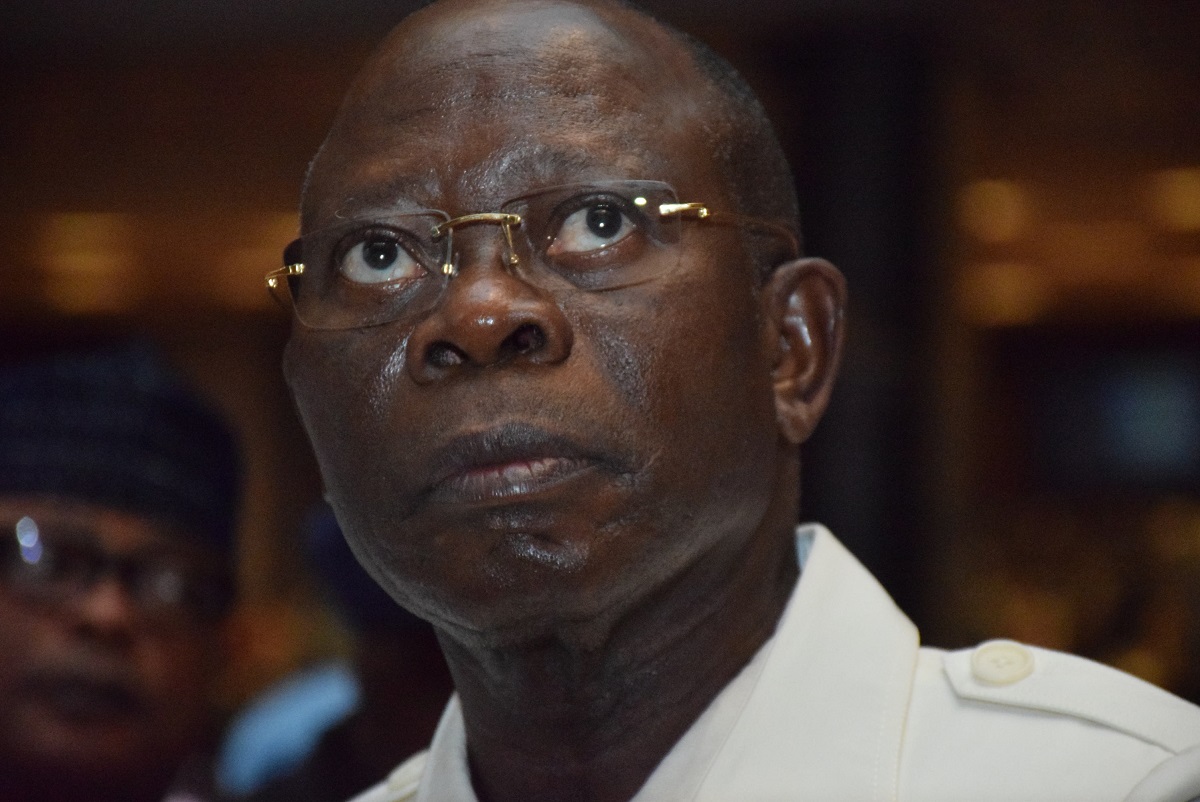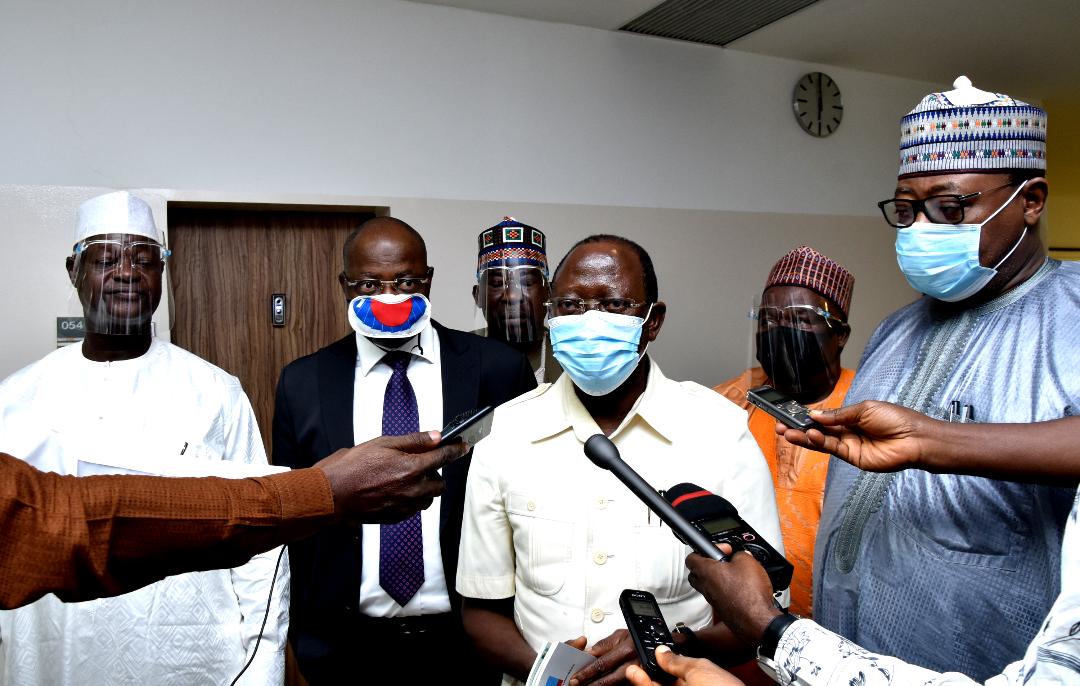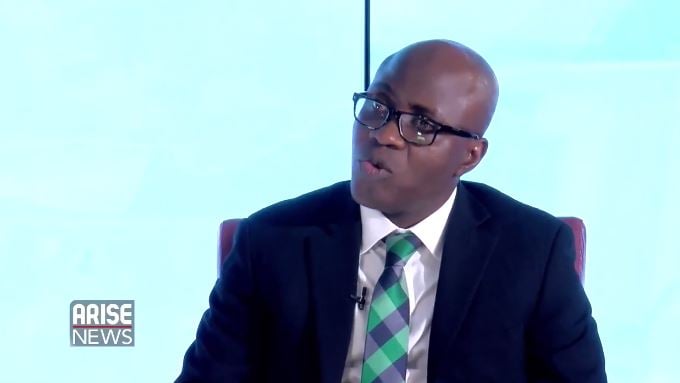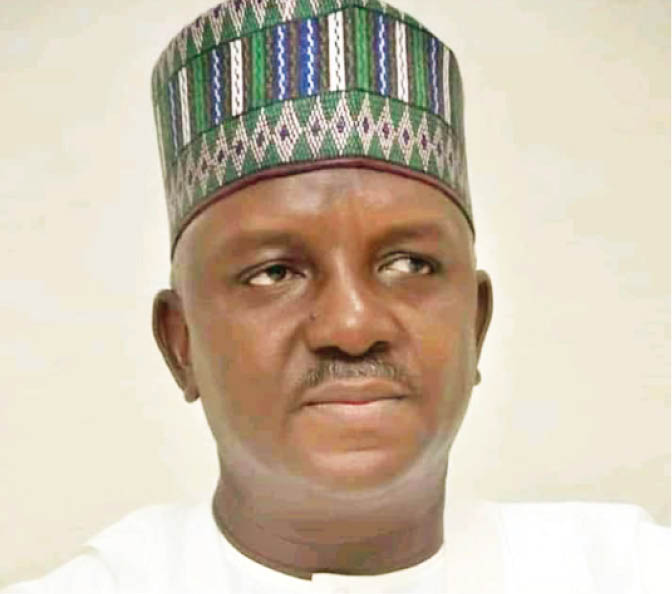It is not on popular record in Nigeria for anyone who hasn’t spent at least a decade as a university lecturer to be elevated to the rank of a professor. But Oladipo Akinkugbe must have exhibited some potentials that the then University College Ibadan (UCI) gave him the highest academic rank just three years after he was hired as a lecturer consultant. And yes, he was just 35.
It took 50 more years of contributing significantly to the field of medicine before Akinkugbe decided it was time to “hang his stethoscope”. This was also celebrated at a formal ceremony held in October 2018 at the University of Ibadan, during which the don also marked his 85th birthday.
Speaking at that event which he chaired, former President Olusegun Obasanjo said of Akinkugbe: “He is a model to many and a symbol of what the young could achieve with commitment and hard work. He has been a reference point for distinction and excellence.”
Akinkugbe’s achievements, especially in the field of medicine, wouldn’t be totally surprising as he was among the few of the early generation of students of Government College, Ibadan and the UCI, who shared the same class with Wole Soyinka, Africa’s foremost literature lord.
Advertisement
For Akinkugbe, it was a robust competition which had lasting effects on their lives since their student days.
“Writing school certificate exams was interesting because we took grade one for granted. Out of the 24 students, perhaps, about 18 or 20 got grade one. So, there was this sense of competition in the various sciences and the arts. I think, in fact, even at that stage, people, like Soyinka and (Christopher) Kolade showed remarkable talent in the arts, English and Literature. Therefore, in a way, morning showed the day,” he recollected in an interview in 2010.
If he had been spared a few more weeks, Akinkugbe, who died on Monday, would have clocked 87 by July 17.
Advertisement
THE PROFESSIONAL AND ACADEMIC JOURNEY
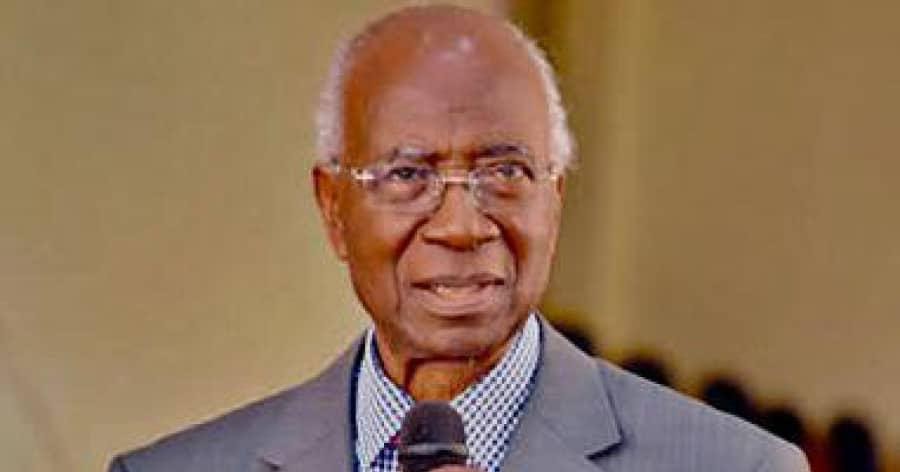
After passing his MB exams organised by University of London under which UCI was affiliated, he was among those asked to transfer their medical programmes to London.
“The University of London had a dozen teaching hospitals at the time. I then continued my clinical training at what they called the London Hospital, where I was, for three years,” he said in the interview.
Advertisement
“Later, I graduated with MBBS. And straightaway, after my house jobs, which again was in London Hospital and Kings College Hospital, I went for postgraduate work. That was how I got a postgraduate professional degree. I came back to Nigeria and was made medical officer, special grade, at Adeoyo Hospital, Ibadan.”
He soon got a Commonwealth scholarship and he was back in England for further postgraduate work and this time, it is one that would lead to a PhD.
“Then I went to Oxford University. I did some research on hypertension, high blood pressure, under one of the most acknowledged international experts in that subject, Surgeon Pickering. After that, I got my PhD. So, having been armed with both academic and professional qualifications, I took up a job at the UCH, Ibadan as a lecturer consultant in early 1965. And within three years, that is 1968, I was promoted professor of medicine at the age of 35.”
ENJOYS TEACHING MEDICINE
Advertisement
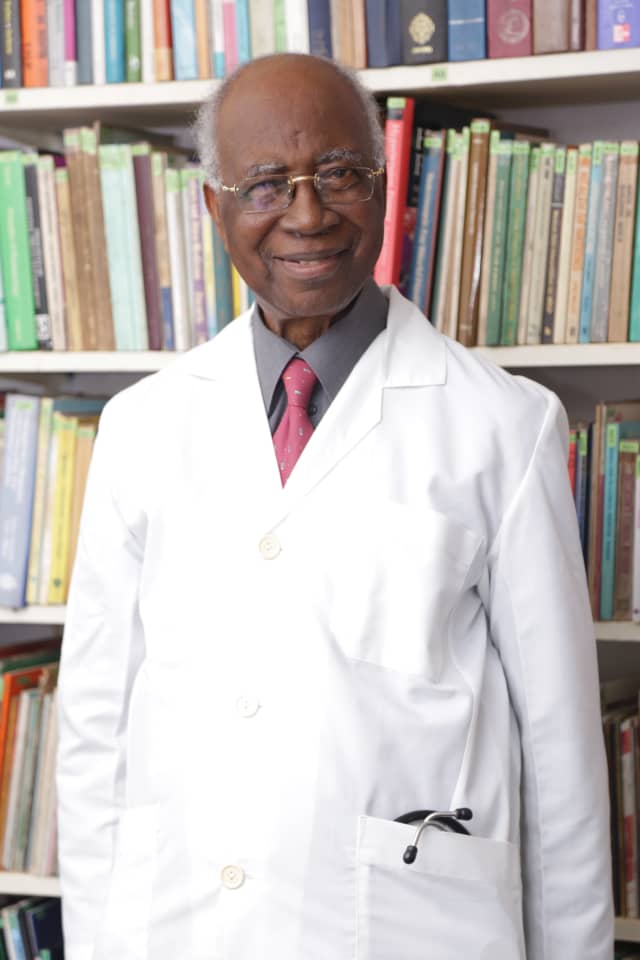
Practising and teaching medicine was what he did for almost six decades, and for him, the teaching part was what he enjoyed most.
Advertisement
Nothing could be more fulfilling when teaching based on one’s experience, Akinkugbe explained.
“When you are teaching, you are also researching because you are always asking why the condition is like that and what can be done to improve on it or what causes it? So, they are intertwined. I have enjoyed teaching medical students over the years. And quite often I focused on those just entering the system, the clinical years, what we called the introductory courses and early postings partly, because I always like imparting skills to them at that formative age,” he continued in the interview.
Advertisement
“That is, besides teaching, eliciting signs of symptoms, which is making a diagnosis, that is the most important thing in medicine. Once you get into your own system, the skill of examining a patient properly is important. It is like driving; it won’t leave you. It is very important to acquire the right approach in those formative years.”
He went ahead to boast that doctors who are products of his alma mater come highly recommended because of the “proper way they’ve learnt medicine.”
Advertisement
GOVERNMENT CANNOT DO EVERYTHING FOR HEALTH INSTITUTIONS
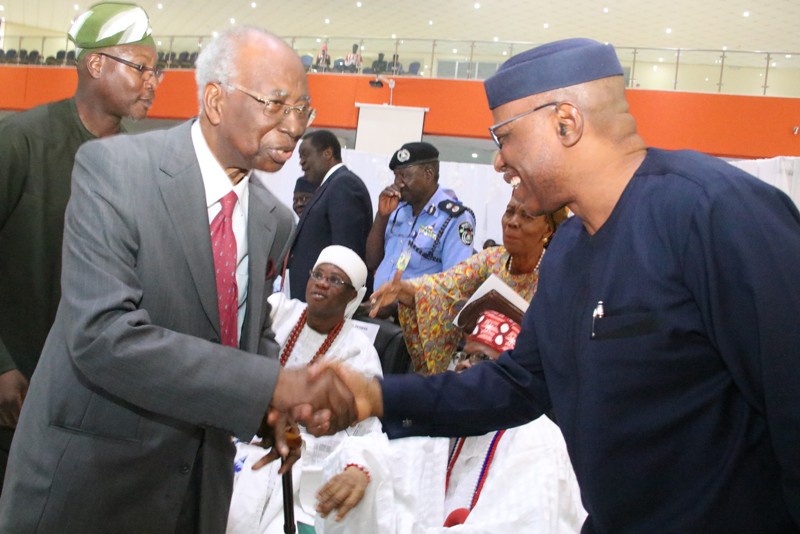
Akinkugbe who has served in many capacities from academic to administration believes that Nigeria’s health management shouldn’t be left to the government alone.
In the interview, he likened the government’s efforts on health to the proverbial “tortoise breathing but it has got a hard shell.”
“You can’t notice the breathing because of the shell and it doesn’t just go up and down with breathing,” he said.
“The government is doing and will continue to do its best, because health is one aspect of what we call the social services. And health doesn’t usually generate income but it uses resources, like education. Those are the two areas that the government must continue to have responsibility. But at the same breath, I must indicate that the private sector also has a major stake in health and education, because the government cannot do everything. Even if you say that 20 percent of the GDP of the budget should be reserved for health, what would happen to education, infrastructure, telecommunication, transportation and others? So, there are so many things competing for the government’s attention.”
He further argued that although he is in the health industry, he would not delude himself into saying health is the most important of all the institutions.
UNLESS THE MASSES ARE EDUCATED, THEY WILL TOLERATE POOR LEADERSHIP
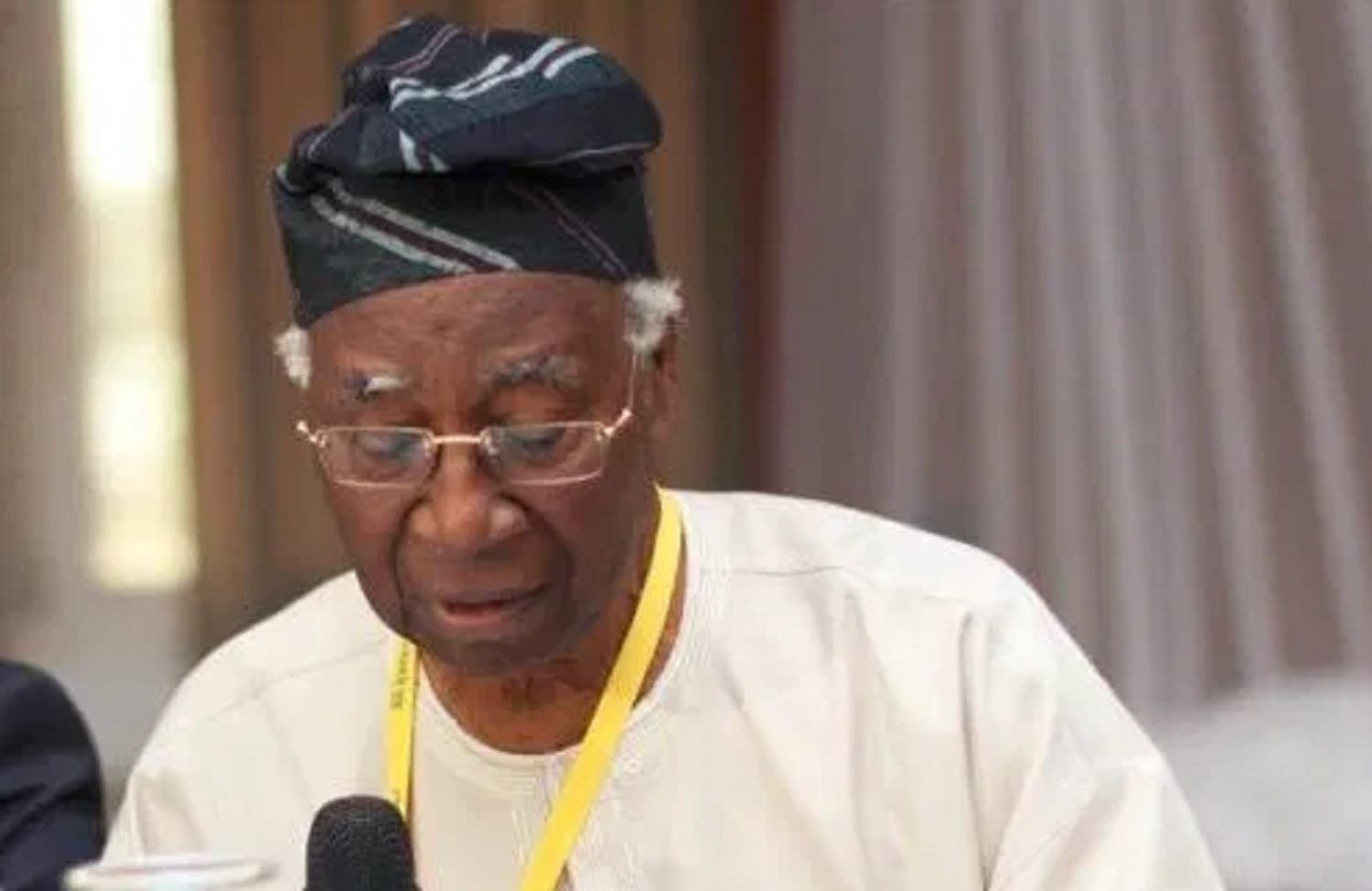
Education, Ainkugbe maintained, is a key to having responsible leadership in Nigeria.
In another interview, he explained that if the masses are uneducated, they will make poor leadership choices.
As someone who has always regarded education as a potent and powerful instrument of social reform that requires serious and immediate attention, Akinkugbe said until the country has well educated electorate, Nigeria will not experience good leadership.
“They are the ones to decide whether a leader is performing well or not after all, and whether to remove him as a result. That is the power of the masses, you see. The people must be educated to understand the power they possess. You will find that if you sat some members of the leadership down, and took them through major issues of the day, many would be found wanting in the real understanding of issues,” he said.
He narrated how he once went to the library of the national assembly to study the constitution, and when he asked the librarian how many senators actually used the library, he was told only a few.
“So, I doubt if many really have had a thorough read-through of the constitution, and these are the ones supposedly practising the constitution, the act of governance,” he said.
“Now, in the US, the library of congress is the largest in the world, and senators there are well informed of the issues affecting their country. Their essays are very well researched, and highly regarded, indeed. So, there is a lamentable gap when you compare the situation in our country. Of course, as it is said that a country gets the leader it deserves, so it is with the states and local government councils. If you come into the national or state houses without a real understanding of the pertinent issues, how then can you do your best for your constituency?”
POVERTY, GREED FUEL CORRUPTION IN NIGERIA

Years ago, while attending to a patient who was a policeman, Akinkugbe asked him how much his salary was. After the policeman had given him the figure, he then asked him again how much he made when manning roadblocks set along expressways.
The policeman would first laugh, after which he replied with a figure that was about twice that of his salary.
“As a medical man, I view corruption as cancerous, a kind of societal cancer. But as you know, as I also said at a time, the things that fuel corruption are the two extremes of poverty and greed. Now, if a system is such that people don’t earn enough to keep and maintain the basic necessities of life, they will look elsewhere to make up for it,” he said in the interview.
LEARNING FROM THE MARRIAGE CLASSROOM

Akinkugbe learnt and offered a lot in return to the academic environment. However, he also gained a lot from marriage to Folasade.
Speaking on how he met his wife, he said: “There have been many versions on how I met my wife. Someone even said that my wife’s father was ill and I was treating him. Then I approached him with a big injection. At that point I said, ‘I want to marry your daughter.’ This, of course, is not true. The real truth is that she was a medical student in England and as I told you, I was also a clinical student. We didn’t meet in England. We first met here, when I was already a medical officer at Adeoyo. And she came on holiday from Royal Field at that time.”
He refused to disclose to the interviewer what attracted him to his wife, but added that “the fact that I dedicated my book to her and to the children speaks volume, in terms of the admiration I have for her.”
And what has marriage taught Nigeria’s foremost professor of medicine? His answer: “It has taught me a lot: tolerance, understanding, togetherness and basic trust. So, these are important ingredients. But no single couple would say they have never had ups and downs. It is the ability to overcome them that matters. There has to be spirit of compromise, accommodation and one must not have his or her way all the time if the marriage must succeed. So, it has really taught me a lot of things.”
The renowned professor who hailed from Ondo state was head of medicine, dean medical school, 1972, and 1970 to 1974, respectively.
He was pioneer vice chancellor of the University of Ilorin from 1975 to 1978, and vice-chancellor of Ahmadu Bello University, Zaria, from 1978 to 1979.
From 1981 to 1982 he was a fellow at Balliol College, Oxford University, England, and was also fellow at Harvard Medical School, Boston from 1974 to 1975.
Relatively soft-spoken, his knack for being meticulous about his affairs earned him much-deserved respect within and outside Nigeria’s confines.
This is aptly captured by Sulyman Age Abdulkareem, vice chancellor of the University of Ilorin, who described Akinkugbe’s death as a great loss to the nation’s academic community.
In a condolence message issued on his behalf by Kunle Akogun, the institution’s director of corporate affairs, the vice chancellor said the emeritus professor laid a solid foundation for the University of Ilorin, on which other vice-chancellors after him built.
The vice chancellor described him as an astute administrator, a medical colossus, a consummate academic, a consistent advocate of better healthcare delivery system in the country, a mentor par excellence and a role model of no mean stature.
Indeed, Akinkugbe has made footprints on the sands of time, and his legacies are surely outliving him.
